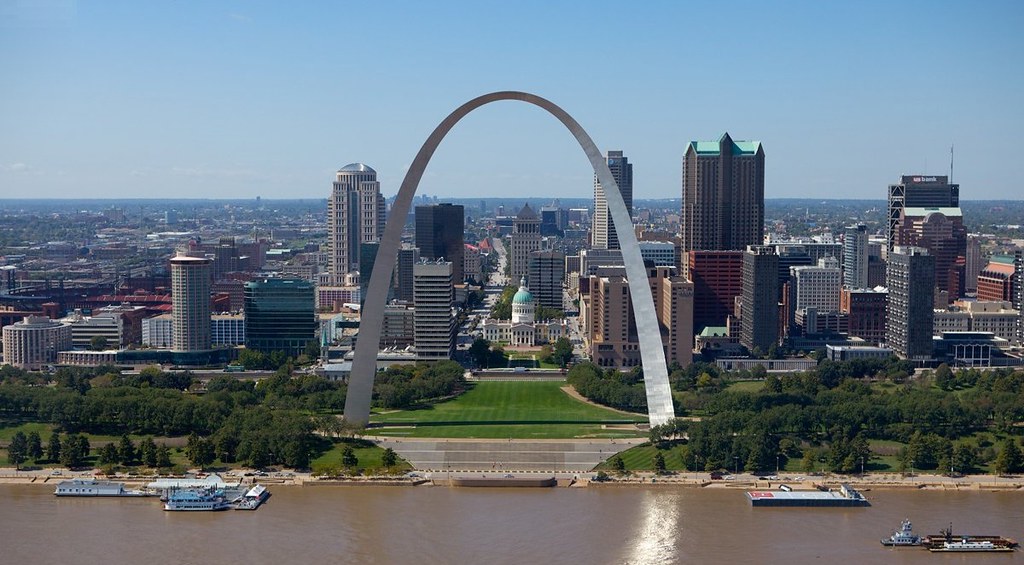
At least 1,921 Missourians died of opioid-involved overdose in 2020, an increase of almost 20 percent from the year before. The rise has particularly impacted Black and other communities of color within the state, reflecting a national trend. Now, Missouri could get as much as $500 million to expand drug treatment and harm reduction services. It sounds like a lot. It likely won’t be.
A landmark settlement could reshape the country’s approach to opioids and overdose—if there’s enough pressure to target its implementation. Following more than 3,000 lawsuits filed by states and local governments, four pharmaceutical giants will collectively pay out nearly $26 billion for their roles in improperly marketing or distributing opioids.
The massive settlement could collect up to $5 billion from Johnson & Johnson; up to $6.4 billion from AmerisourceBergen and Cardinal Health; and up to $7.9 billion from McKesson.
The deal could be approved next month. But state and local governments must sign on—dropping any pending lawsuits of their own—before payout figures are confirmed. The more city and county agreements signed, the more money their state receives. New York and Florida are each anticipating over $1 billion. Other states, like Minnesota and Arkansas, anticipate under $300 million. Payments would be spread over 18 years.
“When we demonize a single drug, we lose every single time.”
Dr. Elizabeth Chiarello, an associate professor at Saint Louis University whose research focuses on opioids and the intersection of health care and law, is hopeful that Missouri will invest in a public health approach. That means harm reduction resources, like syringe service programs and safe consumption sites, as well wider social solutions for people who use drugs (prescribed or otherwise) to manage chronic pain.
“It’s the confluence of two crises: an overdose crisis and a pain crisis,” Chiarello told Filter. “We often are pitting people in chronic pain who need access [to medications] against people who have substance use disorders who need other kinds of interventions … we need to care for both groups.”
“Drug crises come in cycles, but we demonize the drug,” she added. “When we demonize a single drug, we lose every single time. We have to think about the demand for drugs—why are they using drugs in the first place—and invest in those solutions.”
Remedies to social problems that can turn drug use chaotic would include investing in jobs, affordable housing, mental health care and, for Black Missourians especially, redressing extreme racial inequity. That $500 million over 18 years—assuming enough counties sign on—would not stretch far across these wide-ranging issues, and such an approach would require the state to heavily supplement the payouts.
It’s unclear as yet where the payouts will actually go, and a lack of clarity or transparency is a national problem. Many states, including Missouri, are saying portions of their settlements will be used for drug treatment, but without specifying how much or what types of treatment. Others, like Ohio, North Carolina and New York, have created their own internal formulas.
“When we get money to solve a social problem, we have to use that money to solve the social problem.”
Corporations paying out settlements to communities they’ve exploited is nothing new. In 1998, a national agreement of over $200 billion was settled with tobacco companies, to be paid out over 25 years. However, very little of that money has ever gone into prevention, cessation or (particularly unlikely) harm reduction for smoking. The majority of annual payouts quietly disappear into general state budgets.
“This is what happens when states just get a windfall and get to do what they want with that money,” Chiarello said. “I hope we learn that when we get money to solve a social problem, we have to use that money to solve the social problem.”
Photograph of Gateway Arch in St. Louis, Missouri, via Flickr/Creative Commons 2.0
"much" - Google News
August 05, 2021 at 02:45AM
https://ift.tt/3lwQ8z7
Will Missouri's Opioid Settlement Payout Mean Much for Harm Reduction? - Filter
"much" - Google News
https://ift.tt/37eLLij
Shoes Man Tutorial
Pos News Update
Meme Update
Korean Entertainment News
Japan News Update
Bagikan Berita Ini














0 Response to "Will Missouri's Opioid Settlement Payout Mean Much for Harm Reduction? - Filter"
Post a Comment